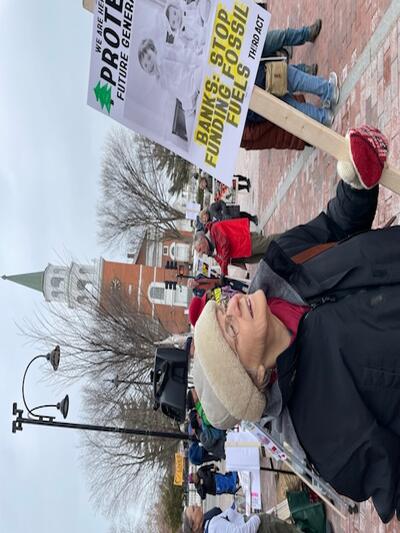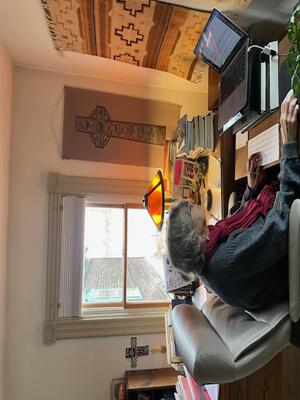Katharine M. Preston

Katharine Preston highlights the critical need for collaboration between scientists and progressive religious leaders. She argues that movements for justice and sustainability must be rooted in both grounded facts and grounded faith—and that neither alone is enough for the challenges ahead.

Katharine Preston reflects on the evolution of Religion and Ecology as a field—and the growing number of people weaving spiritual practice into ecological work. She shares hope for a future where this integration becomes the norm, not the fringe.
“We need to move beyond urgency into reverence—into a sacred relationship with the Earth that can sustain us for the long haul.”
In this episode of Reflections on Religion and Ecology: Yale Alumni Speak from the Field, Katharine M. Preston—ecumenical lay preacher, writer, and climate activist—joins host Tali Anisfeld to reflect on a life shaped by science, faith, and radical commitment to the planet.
With degrees in environmental science and divinity, Katharine brings rare depth to the intersection of ecology and theology. From seminary to soil, activism to authorship, her work spans the spiritual and material dimensions of climate justice—and invites us into deeper connection with the non-human world.
In this episode, we explore:
– Katharine’s journey from science to seminary
– The Haudenosaunee Thanksgiving Address as sacred practice
– What process theology teaches us about resilience and reverence
– The role of scientists and faith leaders in social movements
– Why slow, sacred relationship-building is the foundation of ecological action
Katharine Preston reflects on what drew her from a science-focused career into seminary—and how working in faith-based spaces shifted her understanding of ecological care. She speaks candidly about the tensions and gifts of integrating analytical and spiritual frameworks in service of the Earth.
Katharine Preston speaks to the paradox of this moment: the urgent need for action and the slow, sacred work of deepening our relationship with the Earth. She invites us to resist quick fixes and instead root our ecological efforts in reverence, patience, and spiritual commitment.

